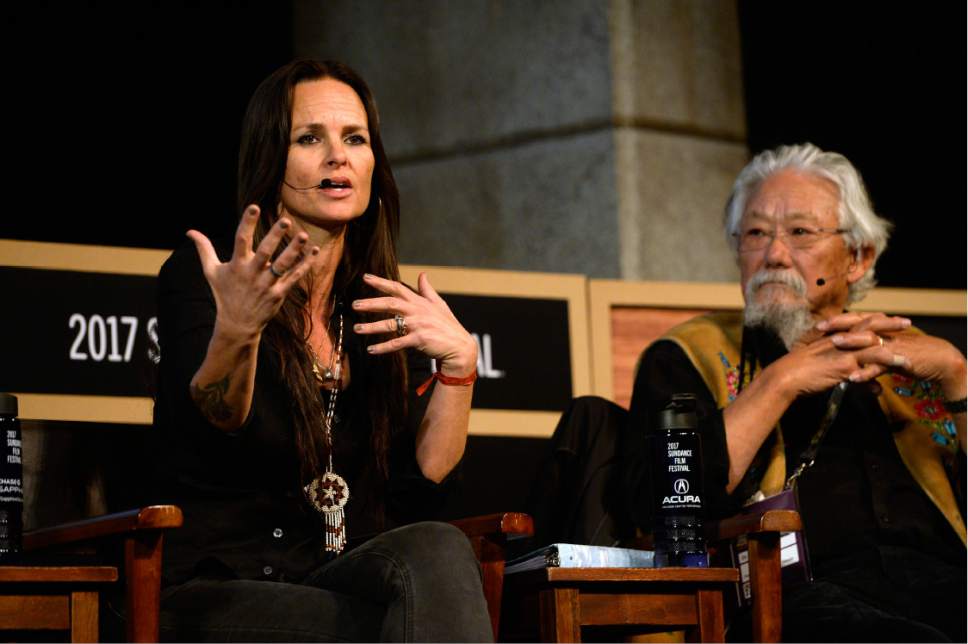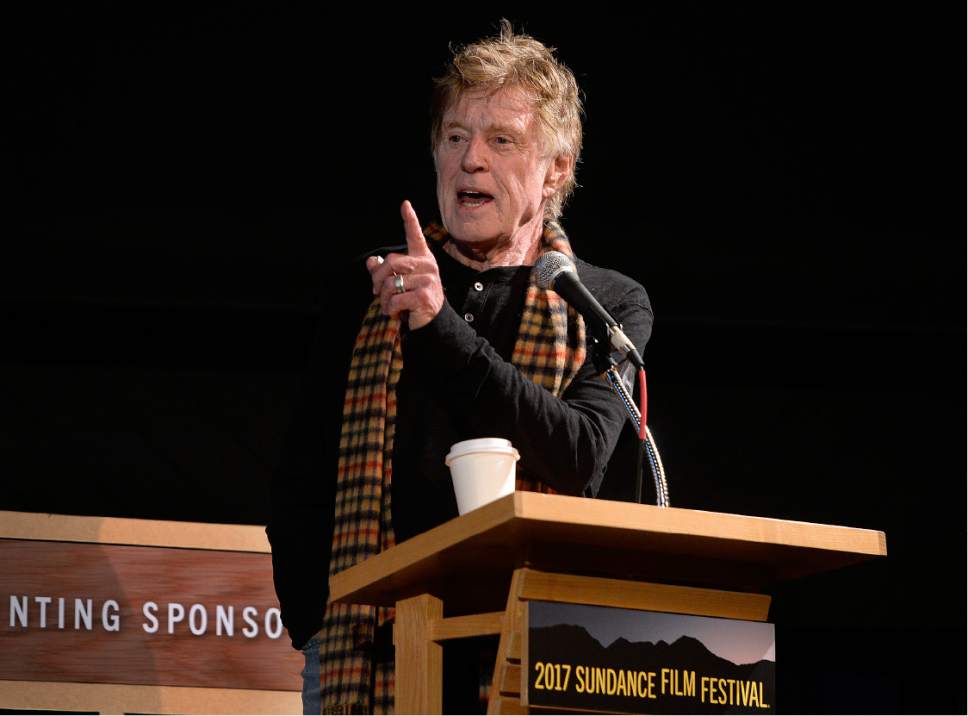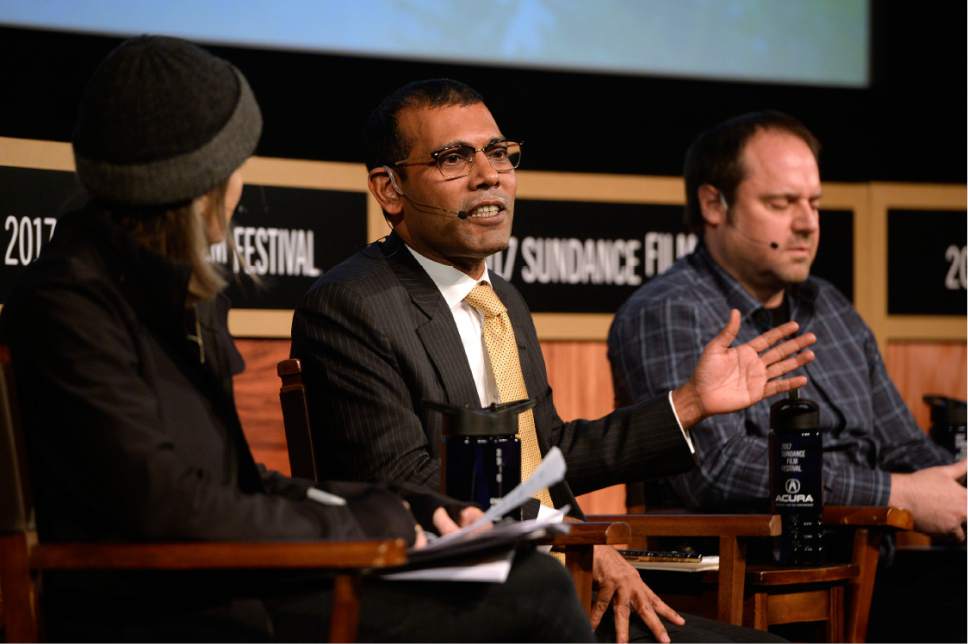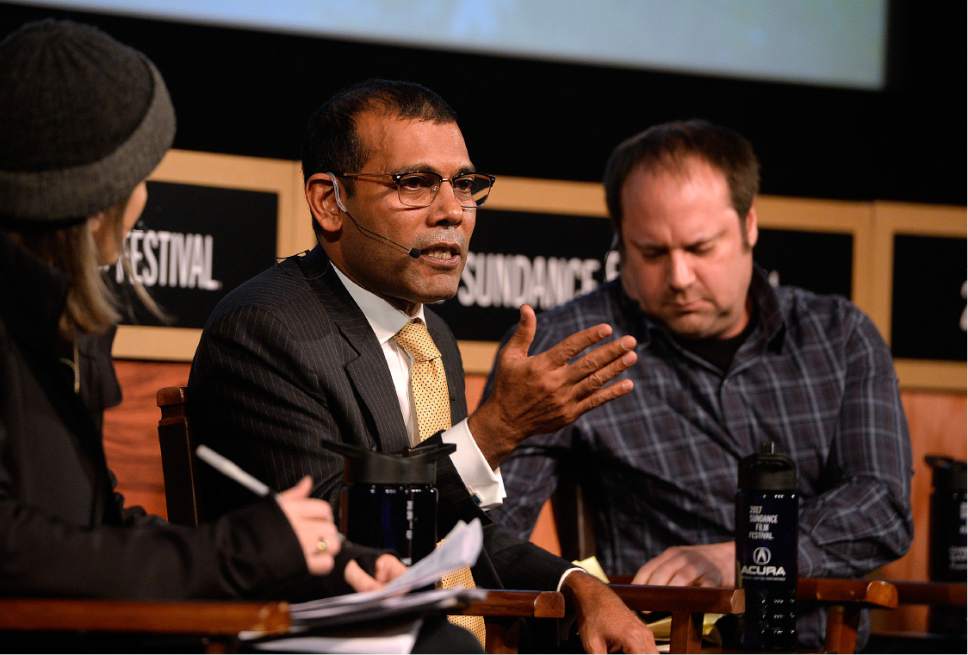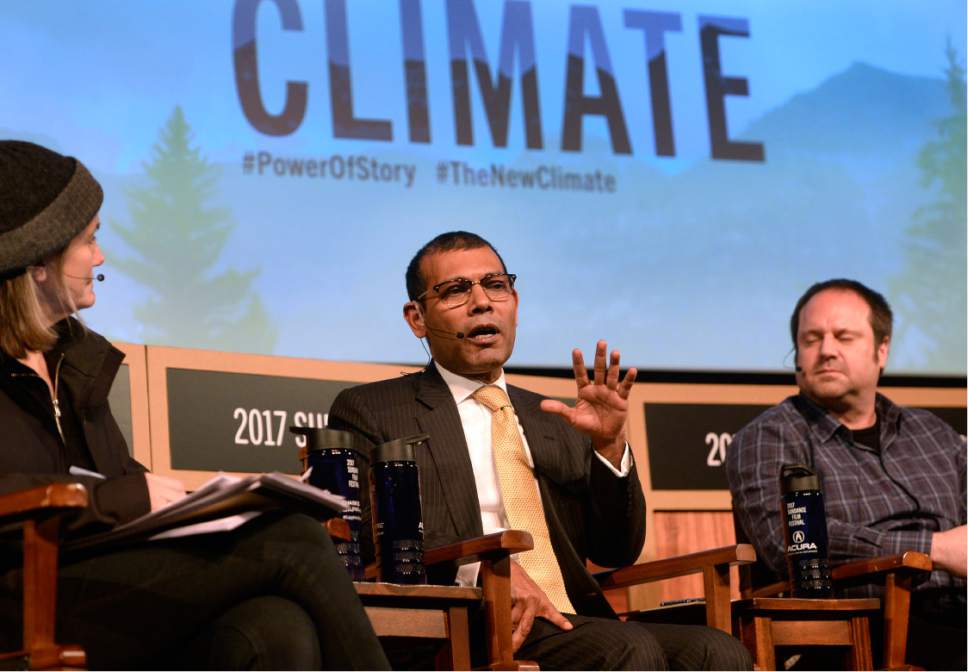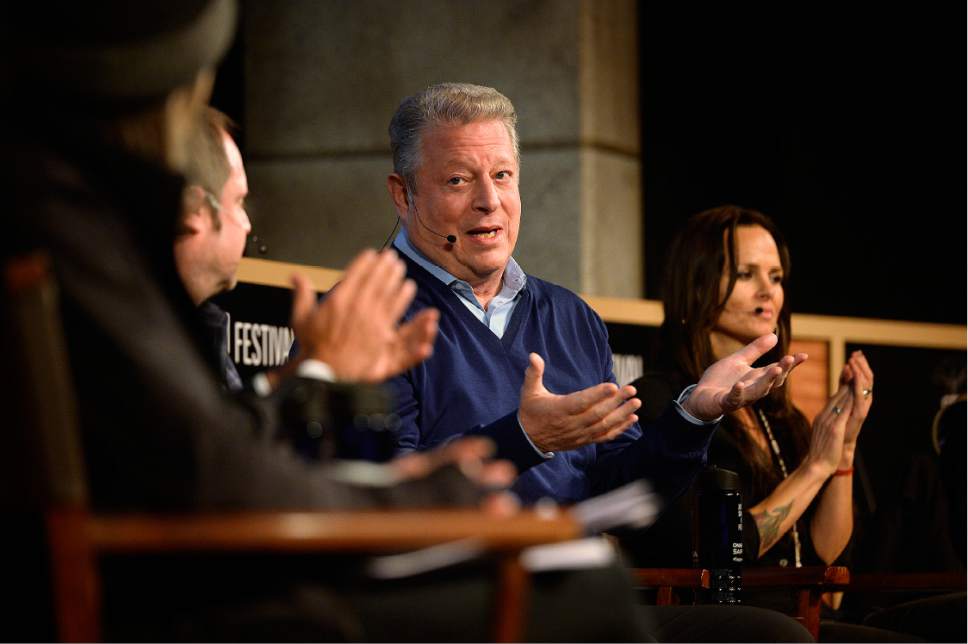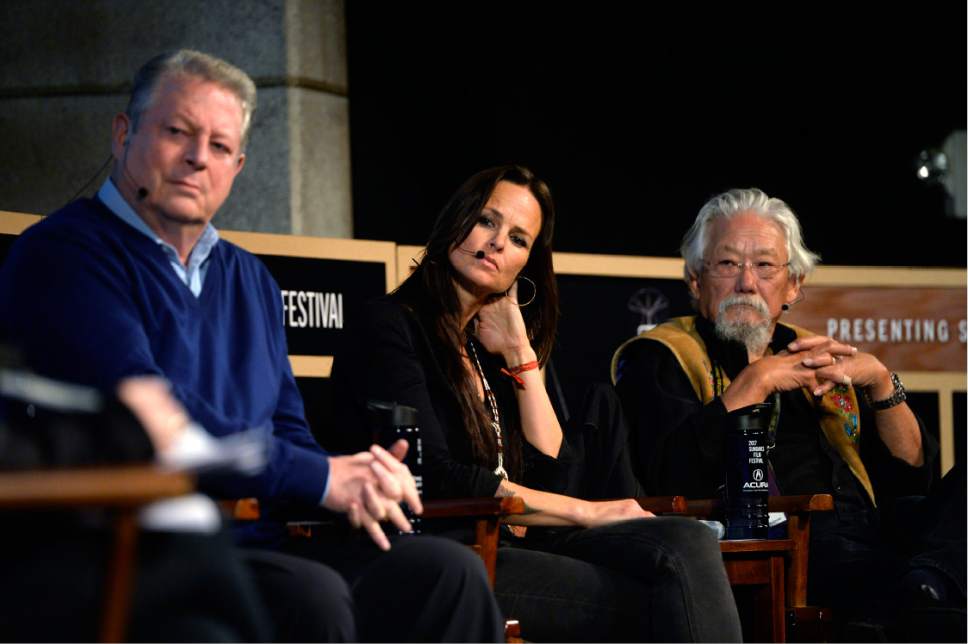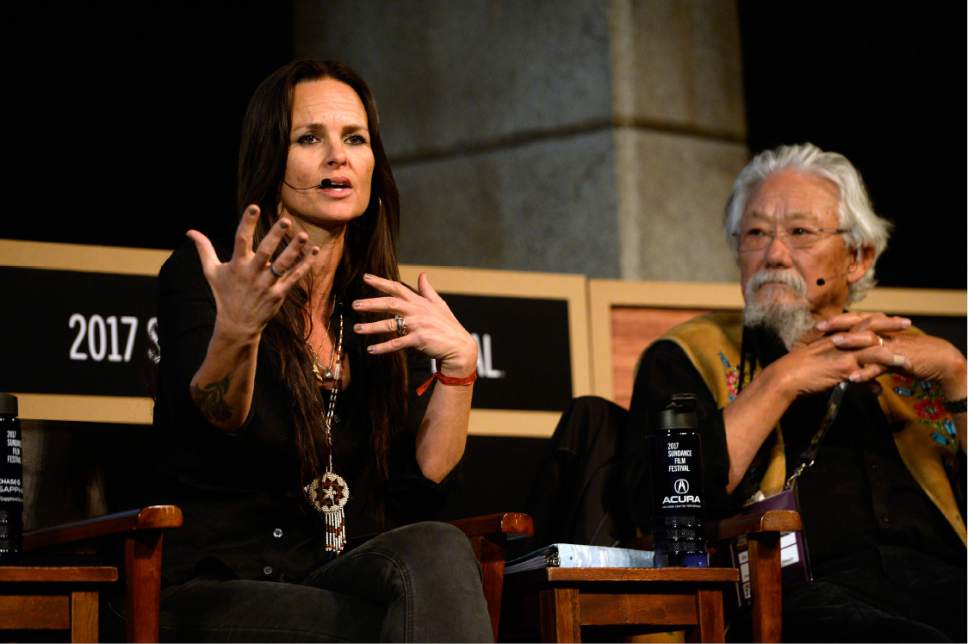This is an archived article that was published on sltrib.com in 2017, and information in the article may be outdated. It is provided only for personal research purposes and may not be reprinted.
Park City • Al Gore sees a political revolution on the horizon to fight global climate change, and storytellers will have a role in making that change happen.
The former vice president told an audience Sunday at the 2017 Sundance Film Festival that the growing affordability of renewable energy — like solar and wind power — is making such technology more attractive than fossil fuels, not just for the environmental benefit but economic benefit.
"The power of the economic story may well overcome the old narrative of climate change vs. the truth," Gore said during the festival's "Power of Story" panel discussion, a keynote of Sundance's "The New Climate" initiative, at Park City's Egyptian Theatre.
Gore decried fossil-fuel utilities nationwide — including Rocky Mountain Power in Utah — that have used their political clout to raise renewable-energy costs artificially or ban them completely.
"In Florida, to lease a solar panel, you're violating the law, because the fossil-fuel-burning utility makes the law," said Gore, who stars in the documentary "An Inconvenient Sequel: Truth to Power," which opened the festival on Thursday.
Another panelist — Mohamed Nasheed, former president of the Maldives — experienced a more direct challenge from the fossil-fuel industry. Nasheed, who has sounded the warning that ocean rise could envelop his island nation, was ousted in a coup that he said was backed by the family that controlled the country's diesel-fuel industry.
Panelist Jeff Skoll, founder of Participant Media — the production company behind such movies as Gore's "An Inconvenient Truth" and the Oscar-winning "Spotlight" — said he started the company "to make compelling entertainment that would get people engrossed in the stories that affect us all."
"An Inconvenient Truth," Skoll said, "sparked a conversation. Now we have the solutions.… New administration or not, the arguments for renewable and clean energy are so overwhelming that we'll win this battle."
Filmmaker Heather Rae talked about the narrative built by the protesters at Standing Rock, battling construction of the Dakota Access Pipeline in North Dakota.
"Woven into the narrative," Rae said, "is a context in the experience to be in a resistance movement." Rae said that narrative began with Native American media creators, and only when violence started did the national media take interest.
Rae and panel moderator Amy Goodman, anchor of the progressive newscast "Democracy Now!," brought to the stage David Archambault, chairman of the Standing Rock Sioux tribe, and one of the leaders of the fight against the Dakota pipeline. Archambault talked about the ongoing battles, on the ground and in court, to stop the pipeline, while also reflecting on the difficulty getting the world's attention.
"It feels like you're talking to somebody with no ears," Archambault said of the legal fight. "Nobody listened for two years. … We knew from the beginning that we didn't have a fighting chance, but we had to do something."
One obstacle to fixing climate change, said scientist and Canadian TV presenter Dr. David Suzuki, is the short-term thinking of politicians.
"The political distance is only from one election to the next," Suzuki said. "There's not enough interest for someone to do the right thing so somebody else will take credit."
Gore praised the "meritocracy" of Sundance, where anyone with talent and cheap filmmaking technology "are able to make amazing stories, and show them to the people."
"Will we choose life? Will we choose a sustainable future?," Gore asked. "I believe the answer is yes, and the stories that can be told by this [artistic] community will speed us faster to that future."
Twitter: @moviecricket
This story has been updated to more accurately describe the identity of a source.


